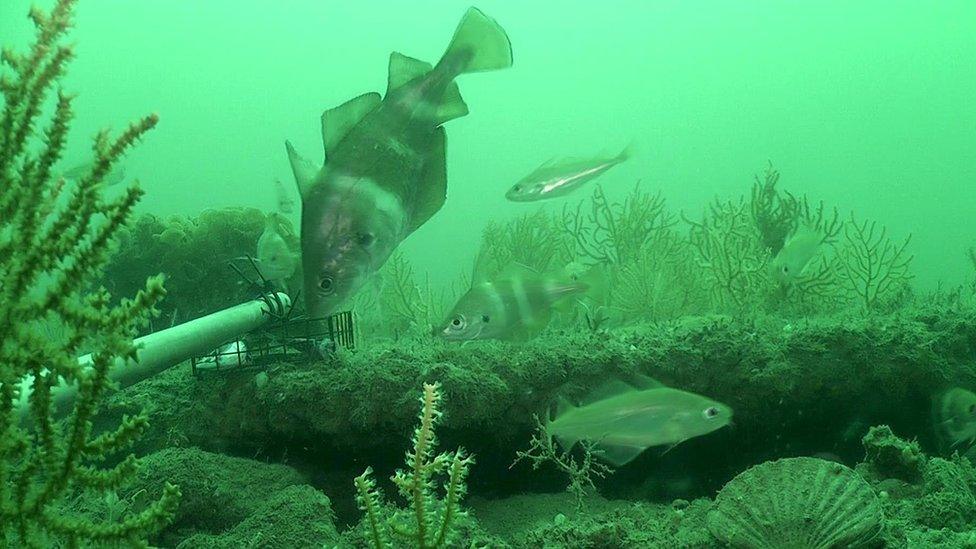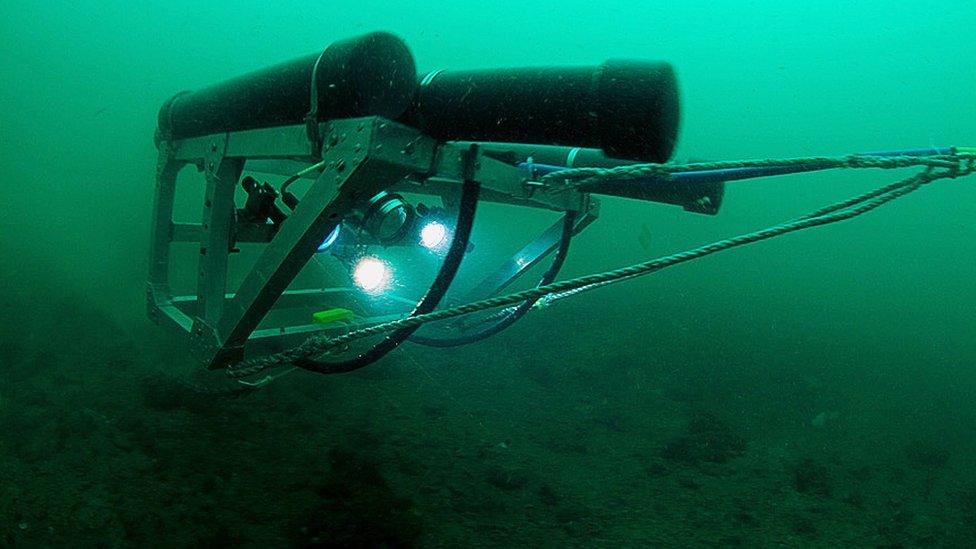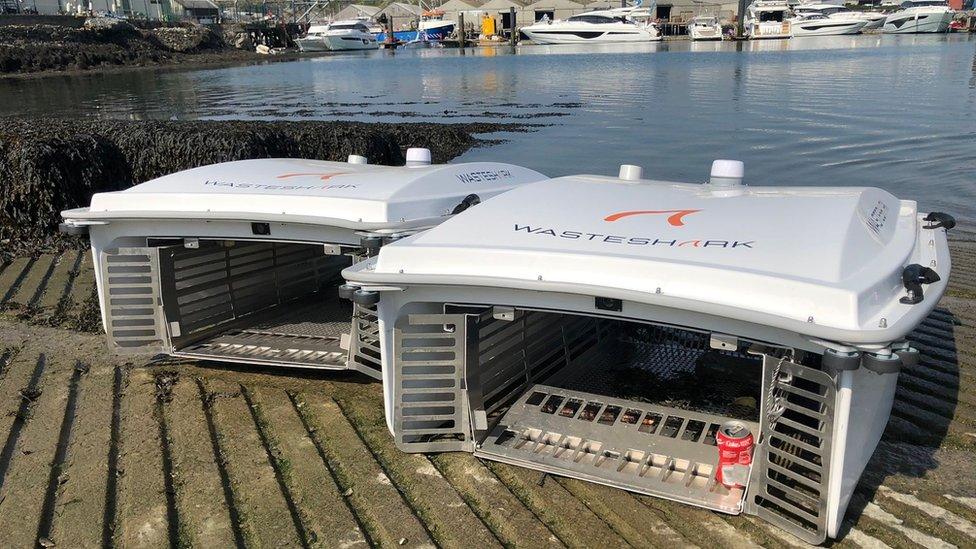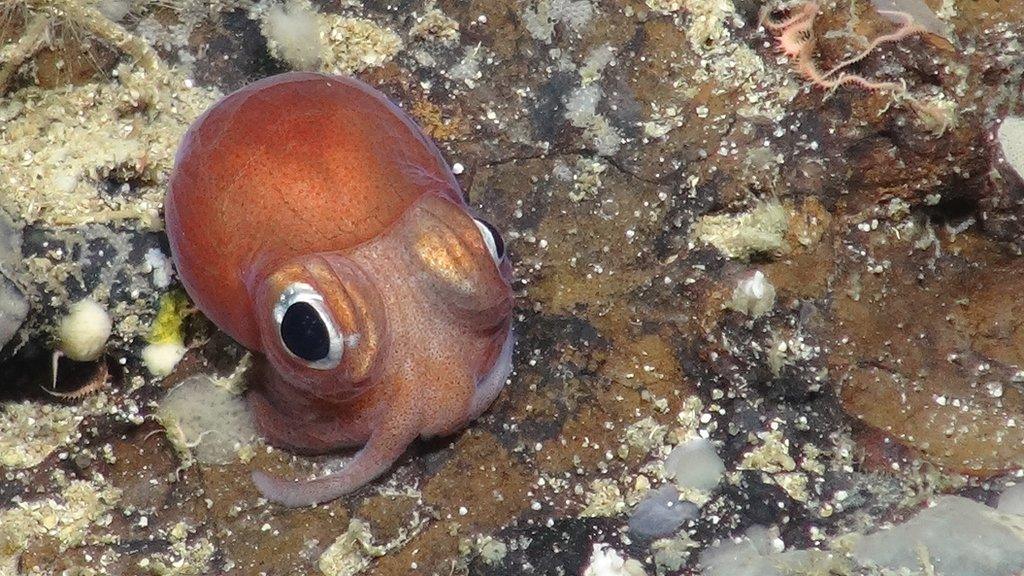Lyme Bay reef species increase in whole site management
- Published

The new study, published in Fisheries Management and Ecology, showed an increase in overall reef abundance
Whole site management of Marine Protected Areas (MPA) can benefit the environment more than managing specific features with them, researchers have found.
The University of Plymouth monitored the MPA in Lyme Bay, external, off the Devon and Dorset coast.
The new study, published in Fisheries Management and Ecology, showed an increase in overall reef abundance.
The whole site approach also resulted in higher levels of species diversity.
Researchers said it was "indicative of a healthier seabed, which is generally more resilient to incidents such as storms or biological invasions".

A towed sled was used for monitoring the MPA at Lyme Bay
Leader of research Dr Bede Davies said: "Many of them [reefs] have been damaged and degraded by human activity, posing a threat both to the reefs themselves and also the species that rely on them.
"This study shows that, given the right support these areas can recover, and MPAs are undoubtedly part of the solution."
The university found whole site management could increase the total abundance of reef species within its borders by up to 95%, in contrast to regions where only known features were conserved.
It has been working with fishers to monitor the recovery of the marine environment in Lyme Bay, external for almost 15 years.
Dr Emma Sheehan, associate professor of marine ecology research, said: "Our work in Lyme Bay has shown what can be achieved by doing things properly from the off, and sets the benchmark for what other MPA managers should be looking to achieve across the world."

Follow BBC News South West on Twitter, external, Facebook, external and Instagram, external. Send your story ideas to spotlight@bbc.co.uk, external.
Related topics
- Published24 March 2022

- Published9 October 2020
